A bustling riverport gone quieter
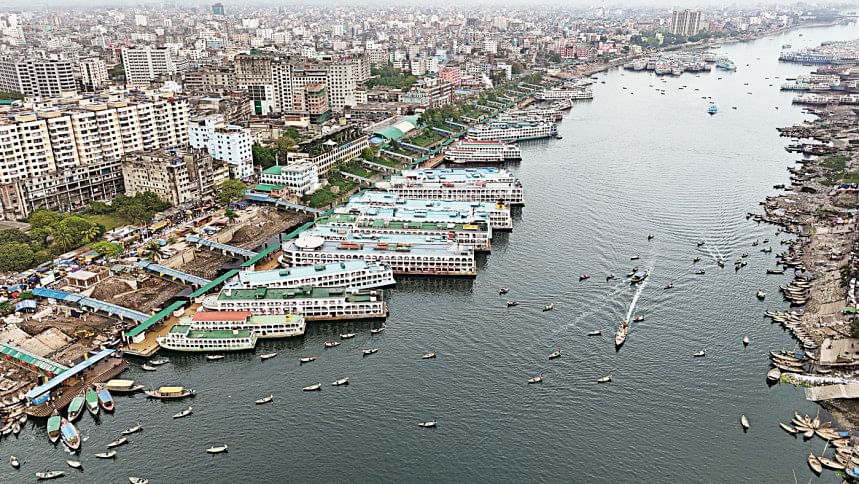
It is hard to describe a place when its glory days are over.
The structures, roads and some of the businesses remain there, but something goes missing -- a thing that can make a chaotic, hectic place charming, and endearing even.
Just a couple of decades ago, before the surge in road infrastructure development across the country, Sadarghat, occupying a central point on the Buckland Bund, served as the central hub connecting millions of people from the riverine south with the capital city. Situated on the banks of the Buriganga, it has been a river port since the 19th century.
In 1967, the Bangladesh Inland Water Transport Authority (BIWTA) constructed a modern naval terminal at Sadarghat. After several rounds of renovation and expansion, it took the shape of today's terminal.
For decades, Sadarghat has been a maddening place, a place where so much would be going on, all at once, it would make your head spin. The impossibly long lines to get a ticket, the desperate rush to get a seat on the launch- on special holidays like Eid it would be a spot to stand on the shouts and cries of passengers, launch operators, vendors and kulis, all would merge to form a cacophonous din. Yet even in that chaos and madness, one could not ignore the excitement and raw energy of this ghat.
The port has become dramatically quieter. You can still see a few big boats with fancy names arrive at Sadarghat from different places across the country. Hawkers and vendors still sell an array of products. The wholesale markets are still as busy as always. And the Buriganga is still flowing and just as polluted.
However, regulars who frequented this place in the past can feel it -- the essence of this place is gone.
With better road communications, the terminal was already slowly losing its status as the main communication hub with the south. But the inauguration of the Padma Bridge, which connects the capital with south-western districts by road, came as a heavy blow.
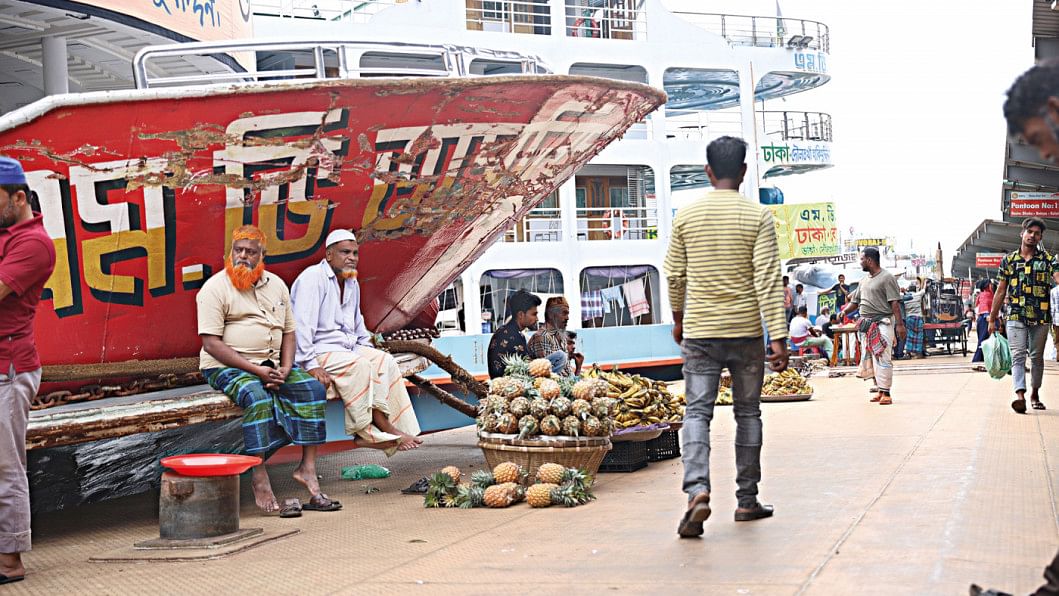
And the effect can be felt by all the businesses around.
During a recent visit in the afternoon, Sadarghat's peak hour, only a few passengers were at the terminal.
The once-vibrant location, teeming with businesses and thousands of people, has become slow and quite uneventful.
With the a drastic drop in the number of passengers, Sadarghat's numerous businesses and makeshift small vendors are now struggling to remain afloat.
"Many vendors have already left," says Mohammad Shohag, a vendor who sells bananas and bread at the terminal.
"Earlier, I used to generate sales of Tk 3,000-4,000 daily. Since the bridge's opening, my sales have come down to Tk 1,500-2,000. Previously, I used to cut a profit of at least Tk 1,000-1,200 per day, but now it has dwindled to only about Tk 500 on a good day," he adds.
"With the current surge in prices of essentials, it's now extremely difficult to support my family of four with the income. I'm thinking of leaving this place too," comments Shohag.
Mohammad Masud, a fruit seller at the terminal for over 12 years, echoed the same. "I hardly make any profit now," he says.
The situation is more or less the same for all the vendors of Sadarghat.
It is also hurting the markets -- Sadarghat Municipal Hawkers Market, East Bengal Institution Super Market, and Sharif Market -- and small dining shops in the area.
"Once, this market attracted a huge number of customers. Now we don't get many, even in peak seasons," says Mohammad Sohel, an employee of Raising Fashion at the Hawkers Market, who has been working here for years.
"The prices of everything have gone up, but not our salaries. We get what we used to get five years ago. Knowing the sales, it's hard to push the owners to increase salaries. It's a struggle to meet ends now," he continues.
Parvez Hossain, a worker at a shoe shop at Sharif Market, said sales have come down to half after the inauguration of the Padma Bridge.
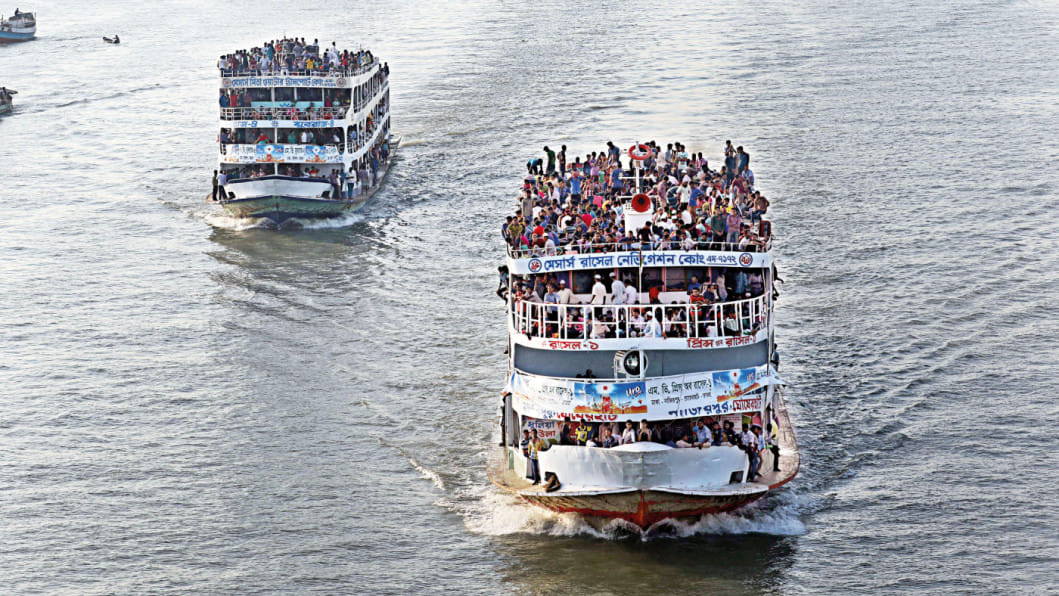
"This is the Eid season. A few years back, at this time, we had to struggle to deal with the huge number of customers. But now only a few come this way," he says. Most of the shopkeepers in the area echoed the same sentiment.
Besides, some porters who used to earn their livelihood have also changed their profession due to lack of work.
Some have started pulling rickshaws or vans, while some have become day labourers.
Rahamat Miah is one of them.
"I used to be a porter here for at least 15 years. I earn better now. When launches arrived, the whole area used to come alive with activities," he remembers.
"I still miss those days," he says.

 For all latest news, follow The Daily Star's Google News channel.
For all latest news, follow The Daily Star's Google News channel. 

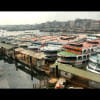
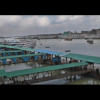


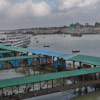
Comments